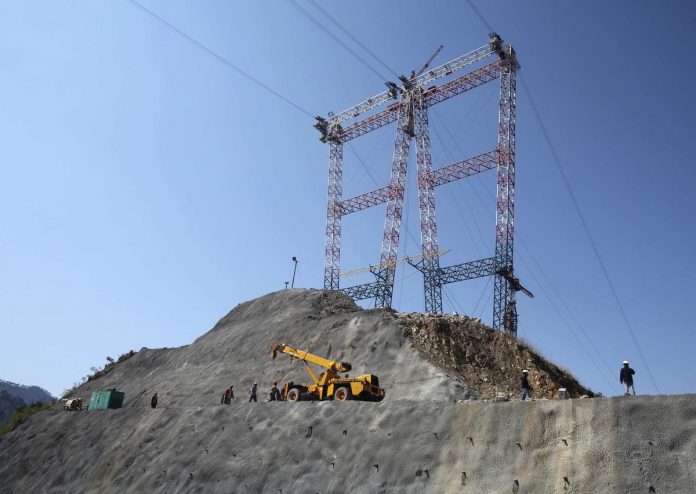India’s Mines Ministry on Thursday announced that 5.9 million tonnes of lithium reserves have been found for the first time in the country in Jammu & Kashmir.
Geological Survey of India for the first time established Lithium inferred resources (G3) of 5.9 million tonnes in the Salal-Haimana area of the Reasi district of Jammu and Kashmir,” the Ministry of Mines said on Thursday.
It further said that 51 mineral blocks including Lithium and Gold were handed over to respective state governments. Lithium is a non-ferrous metal and is one of the key components in EV batteries.
“Out of these 51 mineral blocks, 5 blocks pertain to gold and other blocks pertain to commodities like potash, molybdenum, base metals etc. spread across 11 states of Jammu and Kashmir (UT), Andhra Pradesh, Chhattisgarh, Gujarat, Jharkhand, Karnataka, Madhya Pradesh, Odisha, Rajasthan, Tamil Nadu, and Telangana,” the ministry added.
The blocks were prepared based on the work carried out by GSI from field seasons 2018-19 to till date.
Lithium, the catalyst to EV boom?
Lithium-ion battery costs rose last year for the first time in the EV era, according to BloombergNEF. Elon Musk bemoaned lithium’s “insane” rally and said high raw material costs were among Tesla Inc.’s biggest headwinds.
The central government has unveiled incentives of at least $3.4 billion to expedite its lagging adoption of EVs as Prime Minister Narendra Modi vows to reach net zero by 2070. The idea is that manufacturing the costliest component — batteries — locally will make the end product more affordable for the mass market and set the country up as a potential exporter, tapping into surging global demand.
The initiatives have piqued the interest of billionaires like Mukesh Ambani, whose Reliance Industries Ltd. is building an EV battery facility as part of a broader $76 billion push into clean energy. Ambani’s is among three companies, including scooter-maker Ola Electric Mobility Pvt. and bullion refiner Rajesh Exports Ltd. set to receive incentives under a $2.3 billion program to support advanced battery cell development.
The world’s second most populous country has only a fraction of the raw materials needed to satisfy domestic demand for lithium-ion batteries — forecast by Crisil to grow 100-fold by 2030 — let alone produce on a global scale.
As the world moves away from gasoline-fueled combustion engines, demand for lithium, nickel, cobalt and other metals that go into lithium-ion batteries is soaring.
“The entry barriers are quite high,” said Jasmeet Singh Kalsi, director of Manikaran Power Ltd. to news agency Bloomberg. The company is setting up India’s first lithium refinery and scouting for nickel, cobalt and copper assets overseas. “China has captured most of it.”
India has a long way to go to catch up, and also faces competition from other countries, including the US, which is pushing to grow domestic battery production in an effort to break China’s hold on the market.






